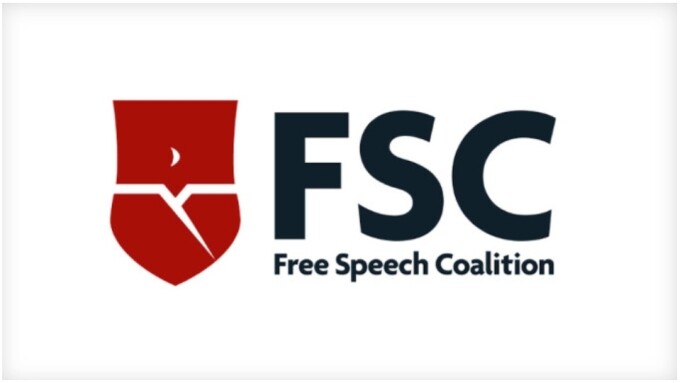LOS ANGELES — The Free Speech Coalition (FSC) has issued an explainer for this week's 2257 record-keeping ruling by the U.S. Third Circuit Court of Appeals.
The text of today's explainer follows:
A panel of the U.S. Third Circuit Court of Appeals gave FSC and the other plaintiffs a victory in this 2257 case, even if the somewhat complicated ruling did not go as far as we hoped it would.
Here are the most important facts about the ruling:
- Section 2257 and 2257A of the US Criminal Code (“2257”) were ruled unconstitutional under both the First Amendment and the Fourth Amendment, but the law was not struck down in its entirety for all producers
- The FBI can no longer demand access to your records for random inspections
- You are now less likely to be charged with a crime under 2257 and even less likely to be successfully prosecuted
- Both sides of the lawsuit have 45 days to file a petition for a rehearing, so this fight isn’t finished
- You should continue all record-keeping requirements under 2257 as currently written
What is the effect of this ruling on most adult businesses?
The overall effect is that the risk of prosecution for any adult company is now significantly reduced, and the risk of a successful prosecution even more so.
You will have to continue to maintain 2257 records for now, but will not be subject to warrantless searches.
How did the court rule on First Amendment claims?
The 3rd Circuit limited its decision regarding First Amendment claims to the specific plaintiffs in the case, but dismissed the claim of “associational standing” which would have extended it to all producers.
The court ruled that — at least for the ten original plaintiffs — the complex 2257 record-keeping regulations violated their First Amendment rights by seriously discouraging, and were so burdensome as to present a likely restraint on free speech. However, it did not apply that ruling to every adult producer.
That said, the case is precedential, meaning that anyone prosecuted under 2257 would be able to point to this ruling as precedent, severely limiting the government’s ability to successfully prosecute an adult producer under 2257.
How is record-keeping a violation of free speech?
The 2257 record-keeping regulations are so complex that they create a chilling effect on protected speech — meaning they effectively discourage people from creating protected speech. If 2257 were fully enforced, everyone who sends an explicit picture of themselves on text, or retweets an explicit GIF, would have to maintain detailed records on everyone who appears in the image, or face criminal penalties.
Such regulations would discourage people from talking about, creating, or engaging with sexually oriented content, and would have a silencing effect that courts have found unconstitutional. This was, perhaps, the original intent of the 2257 regulations.
Will this decision ever be applied to producers who were not the original plaintiffs
Possibly. If either we or the government petitions for review, and the 3rd Circuit agrees to an “en banc” review, or the case goes to the Supreme Court, the reach could be extended. Of course, there is also the possibility that the opinion could be made worse by an “en banc” panel or the Supreme Court.
Why did you not push to apply this more broadly?
We did. FSC was an original plaintiff to the suit, with the understanding that any decision would apply to our members. In the latest decision, the 3rd Circuit found that we did not have standing to bring the suit — meaning our members would not automatically be protected. This is a disappointment, and we are evaluating how to proceed.
Originally, we had approached many adult companies to become a party to the suit in hopes of broadening it, but most did not want to draw attention to themselves, or be seen fighting a law that, on its face, was meant to fight child pornography.
How did the court rule on Fourth Amendment claims?
The court ruled that no adult producer can be subject to random inspections of their records — something previously permitted under 2257. Any record inspection now requires a warrant (and, thus, probable cause). This applies to all producers, not just the ten plaintiffs.
What does this change for the adult industry?
We can no longer be harassed without probable cause, and it’s unlikely that a record-keeping violation will land you in prison.
From 2005 to 2006, FBI agents raided over 30 adult businesses in an effort to find record-keeping violations. The raids were part of a long-running effort to use minor record-keeping violations to harass and prosecute otherwise legal adult businesses. The warrantless inspections were ultimately stopped by a legal injunction filed by our lawyers. Under 2257, even a minor mis-alphabetizing of a record could result in a felony.
The government is permanently prohibited from conducting this type of inspection, and will now require a warrant.
If this is a victory, do I need to continue maintaining 2257 records?
Yes. For now, the only people specifically included are the ten individual plaintiffs in the case, and the federal government is likely to ask for a review of this decision.
So we’re still forced to keep the records, but they can’t inspect them?
They can still inspect records if a court signs a warrant based on probable cause that you have not followed 2257 or committed another crime (e.g., they have specific reason to believe that you are filming people who are underage), but they may not show up at your offices without a warrant and demand you hand over any records they request.
What if I only shoot GILF porn? All of my models are well over 30!
The risk of prosecution is miniscule, but unless you were one of the ten plaintiffs in this case, you still need to keep records.
What are the possible consequences if they do get a warrant to search my records? On a practical level, why do I need to keep maintaining the records?
While the risk is low, if you don’t have records, or have inadequate records, and they get a search warrant, you can still be prosecuted. Violations of 2257 are felonies. You should always keep records to avoid the possibility of an inadvertent child pornography prosecution. And as long as it remains the law, 2257 documentation increases the value of your library — anyone who might partner with you or purchase your library will need these records.
Do I still have to get the 2257 records from the primary producer if I am a secondary producer?
This depends upon your tolerance for risk. In its decision, the court said it assumed that secondary producer requirements were unconstitutional, but as no secondary producer was party to the case, they did not rule definitively. This is something to discuss with your lawyer.
Why is FSC fighting regulations that require age-verification?
We’re not opposed to age verification. Age verification should always be conducted and documented. Filming someone under the age of 18 is immoral, illegal and punishable by 15 years in prison.
The 2257 regulations were not designed to detect or deter child pornography, and they do not do so. They were designed to make legal adult producers easier to prosecute.
FSC recommends record-keeping for all adult productions, but opposes the overly complicated 2257 regulations, which allowed the FBI to demand adult records at any time, and created a host of criminal penalties for adult producers for even minor record-keeping mistakes. You can read more about our commitment to fight child pornography and our opposition to 2257 here.
How long have we been fighting this?
The law itself has been on the books since 1988 when conservative anti-porn activists in the Reagan administration drafted the 2257 regulations to create additional burdens for adult producers.
The FSC has been relentlessly leading the battle against 2257 since 2004, when the Bush Administration began using the law to harass adult businesses, and requiring not just producers, but “secondary producers” — such as tube sites and review sites — to maintain records for every image on their site.
In 2009, FSC sued the US government to overturn the regulations, arguing that they violated free speech protections and that the FBI searches violated the Fourth Amendment. Over the course of a decade, we’ve won significant victories in that regard, and we thank FSC’s legal team, J. Michael Murray and Lorraine Baumgardner, who have substantially disarmed the regulations.
What’s next?
The government has 45 days to file a petition for rehearing (as do we). So the battle continues. In the meantime, the industry should continue to comply with 2257 absent further, specific litigation.
If there is no further action on the part of FSC or the government, this ruling stands. 2257 records will still be required, but the risk of prosecution will remain low.
If FSC or the government pursues the case further — either with the 3rd Circuit “en banc” or the Supreme Court — it could potentially expand the ruling to apply to all adult producers, or reject the findings entirely and reinstate all of 2257.









